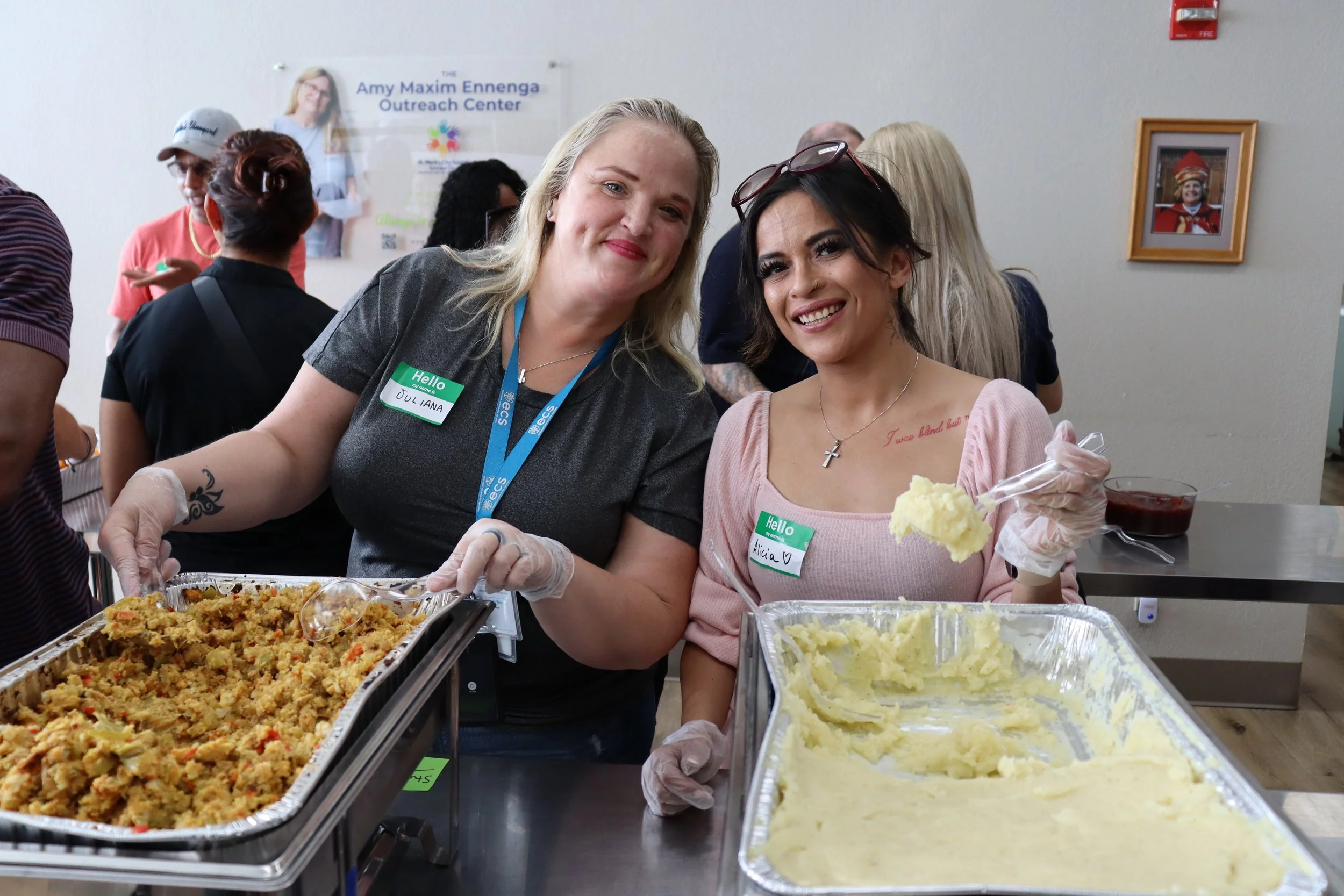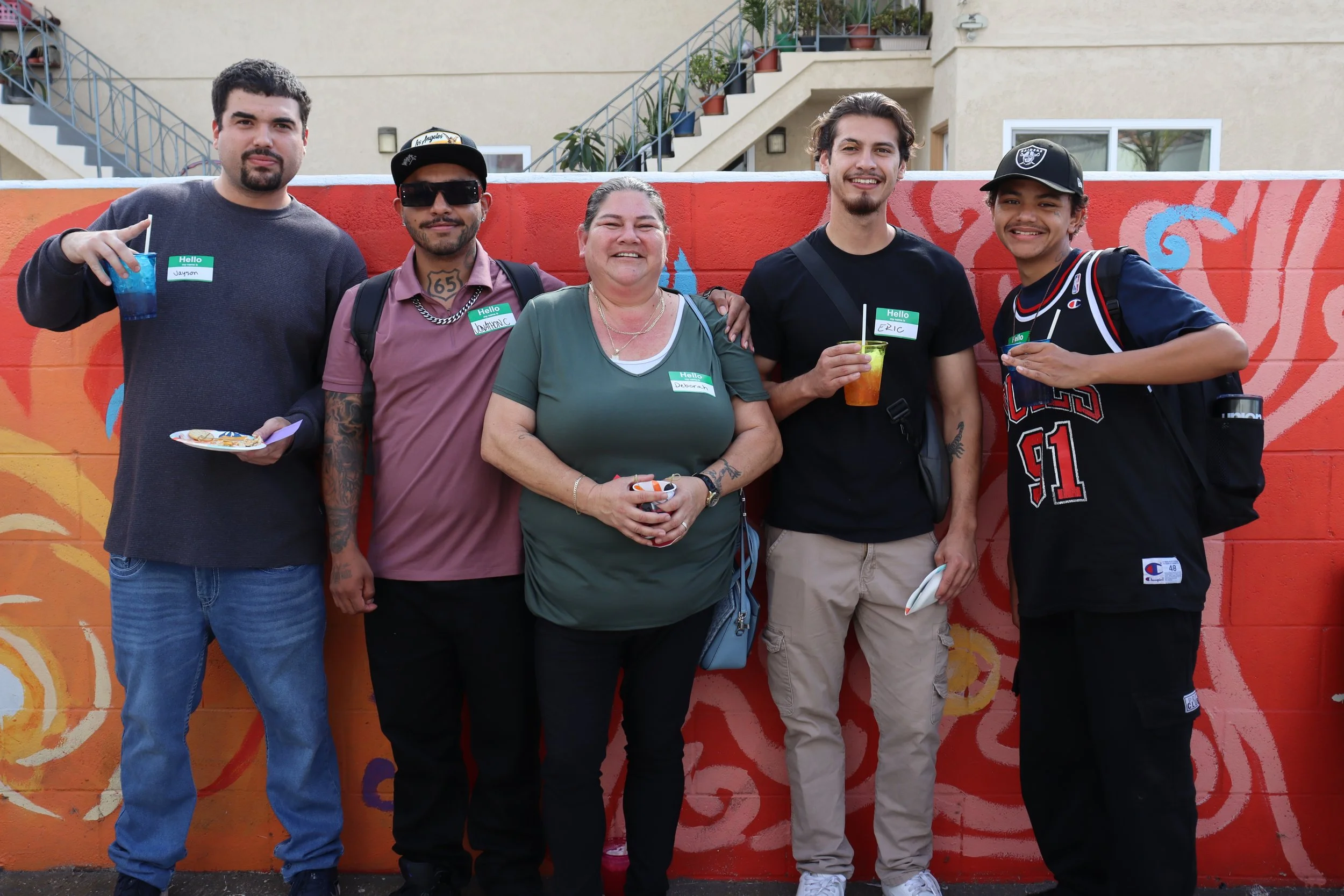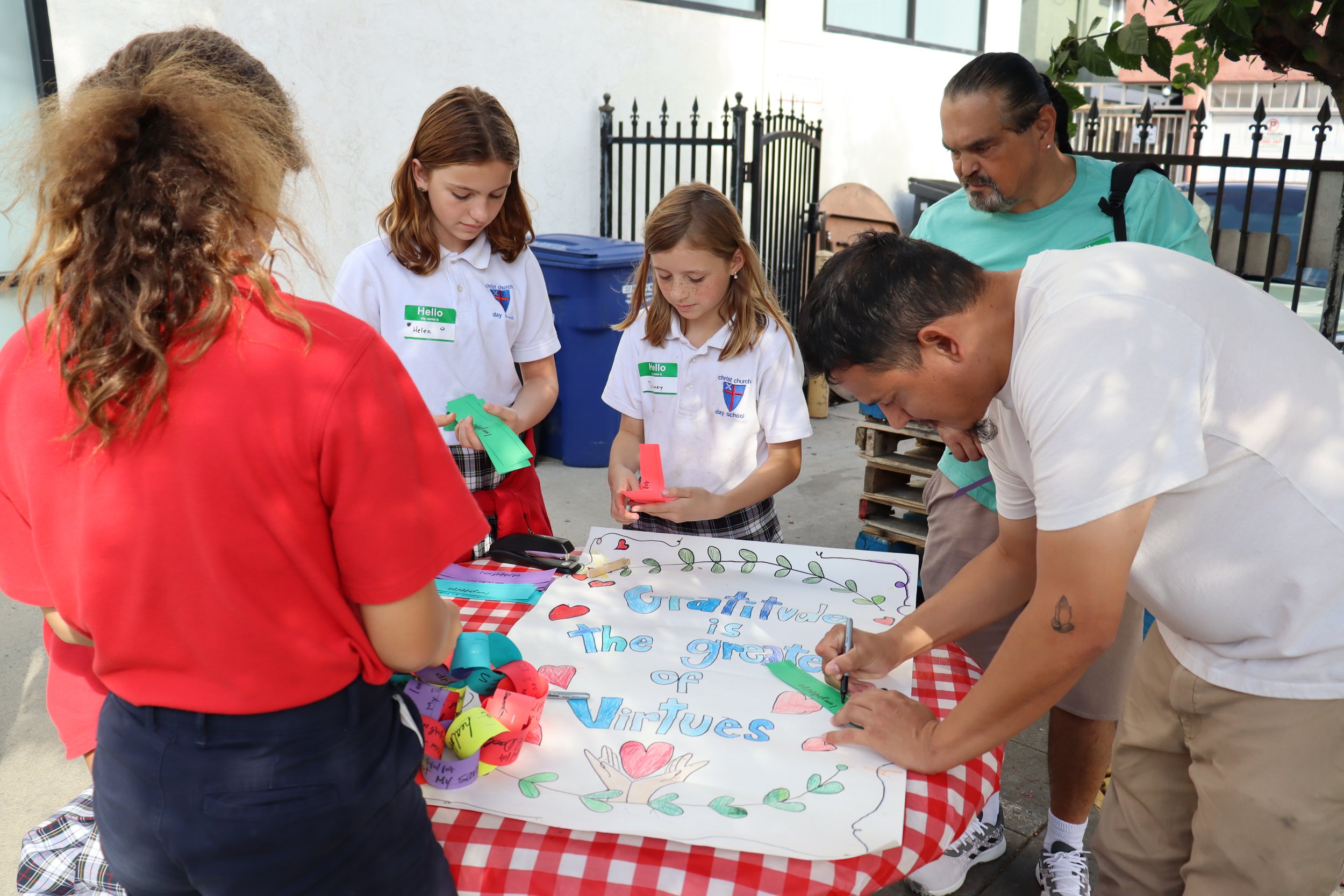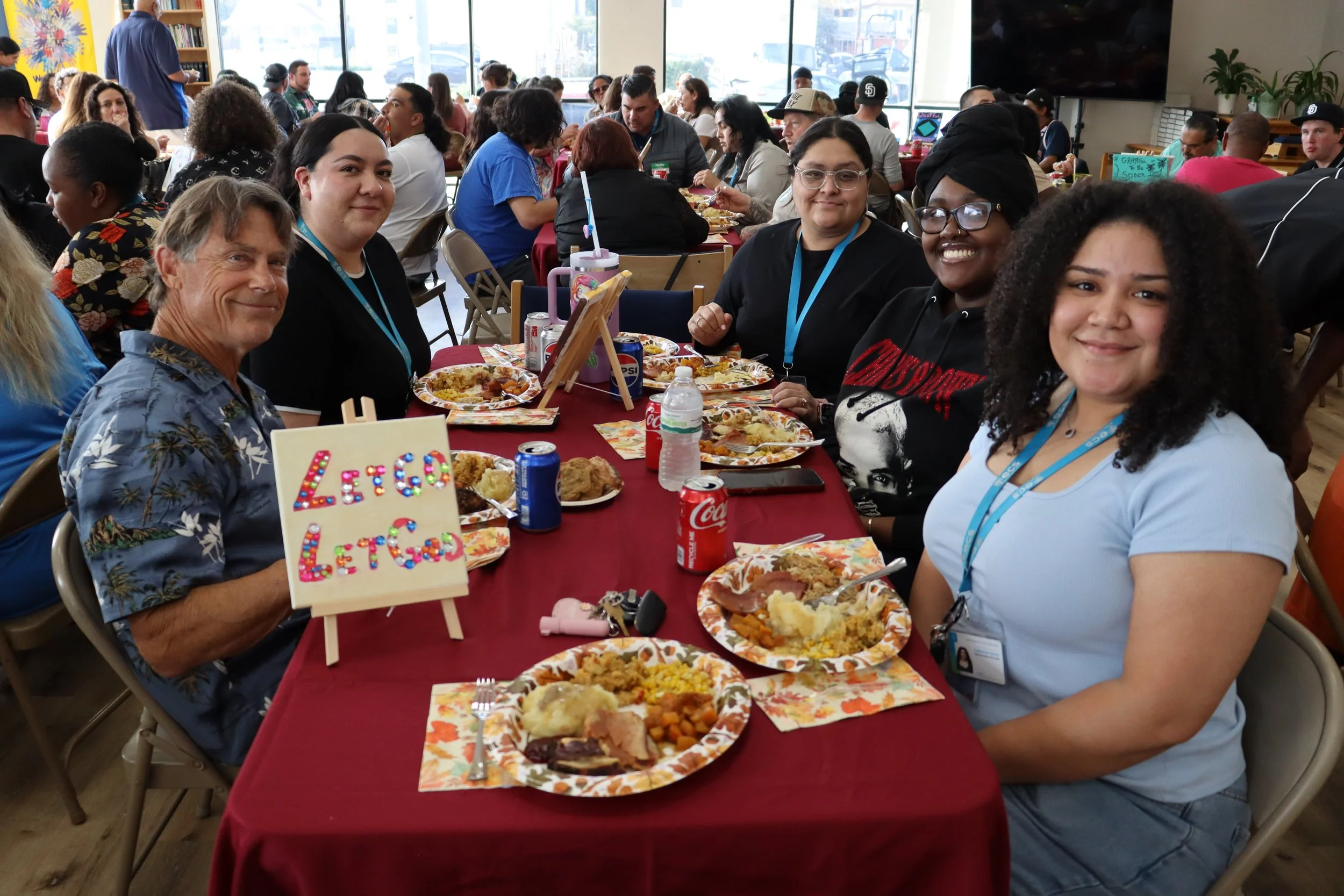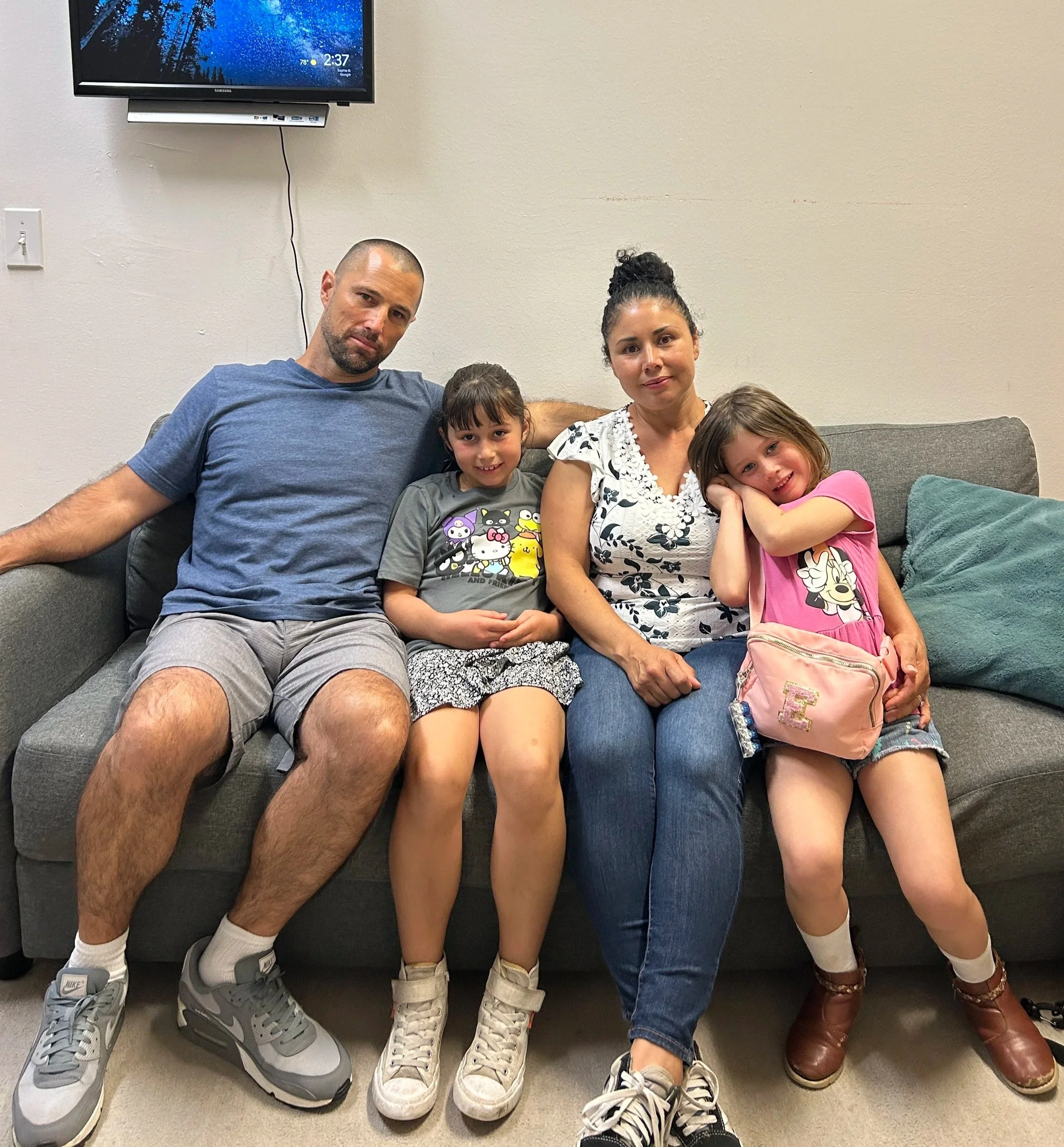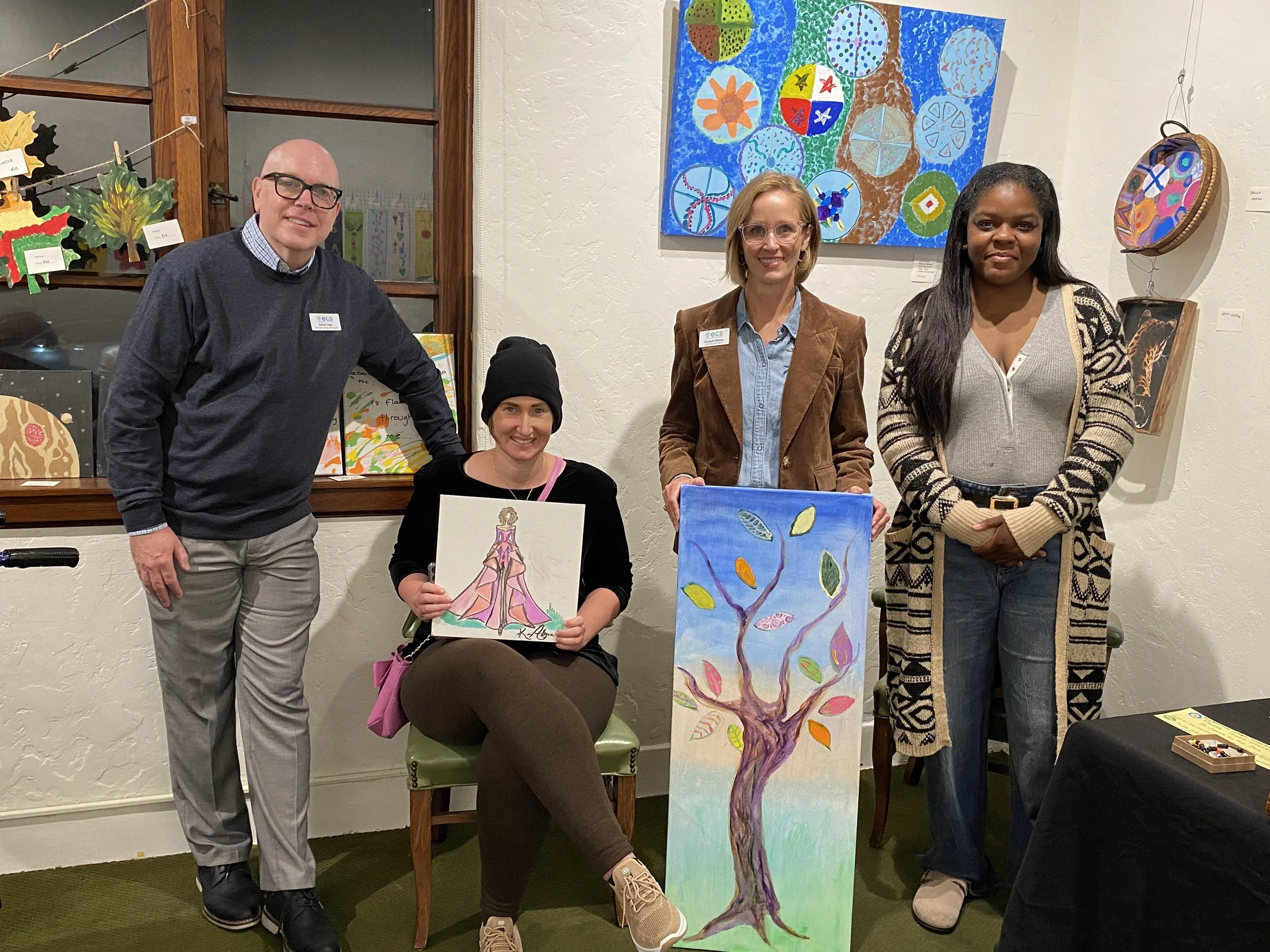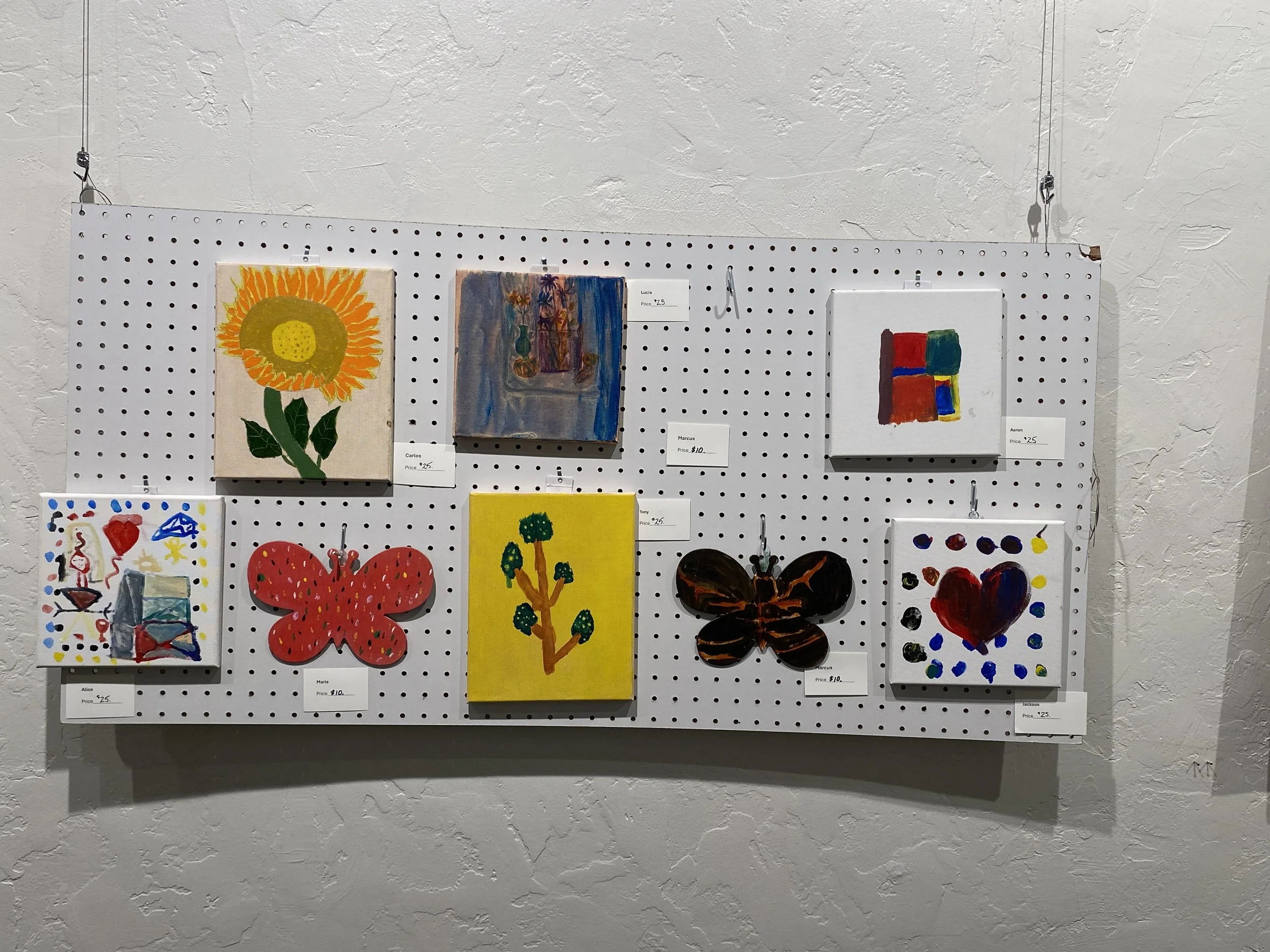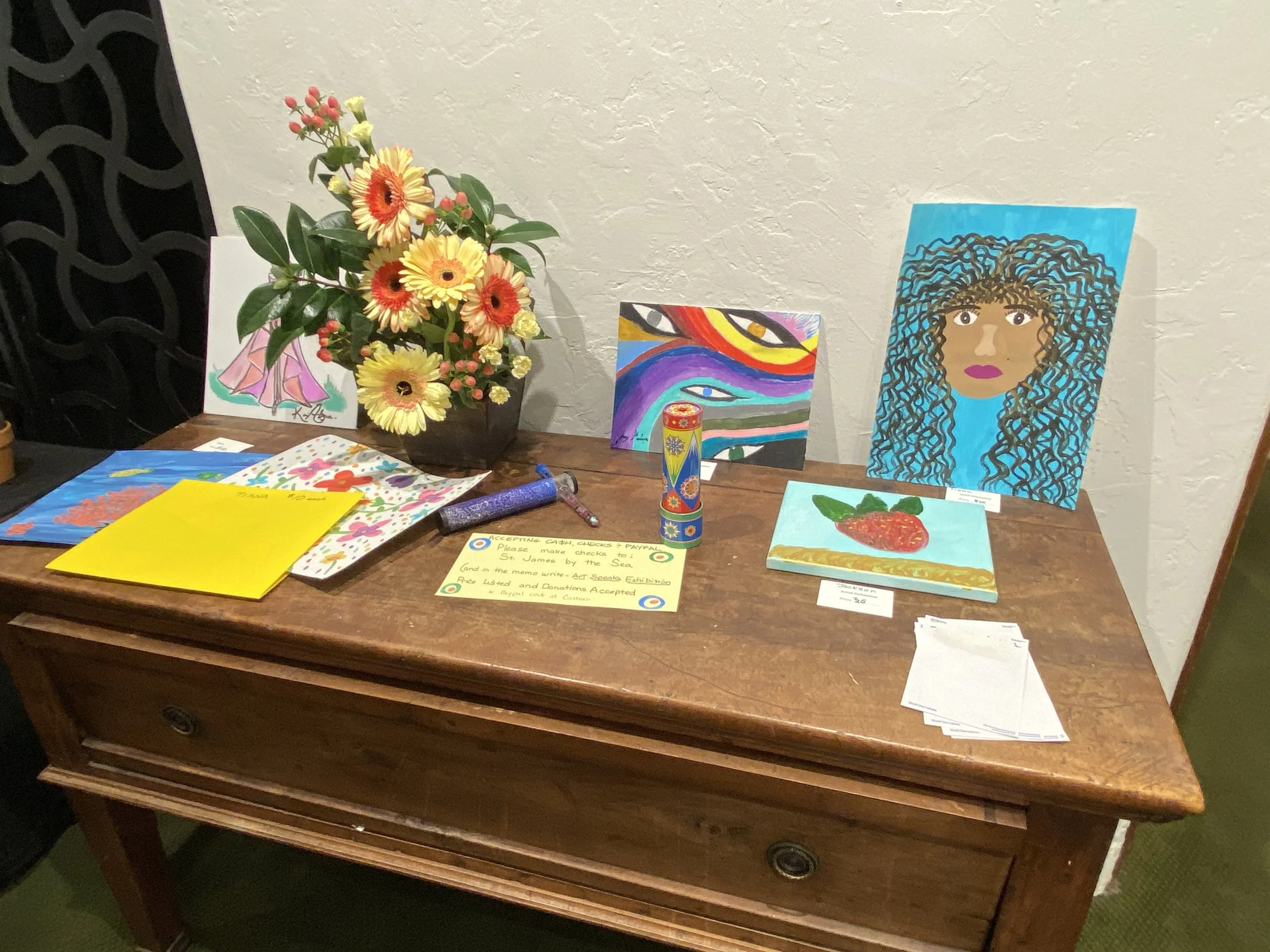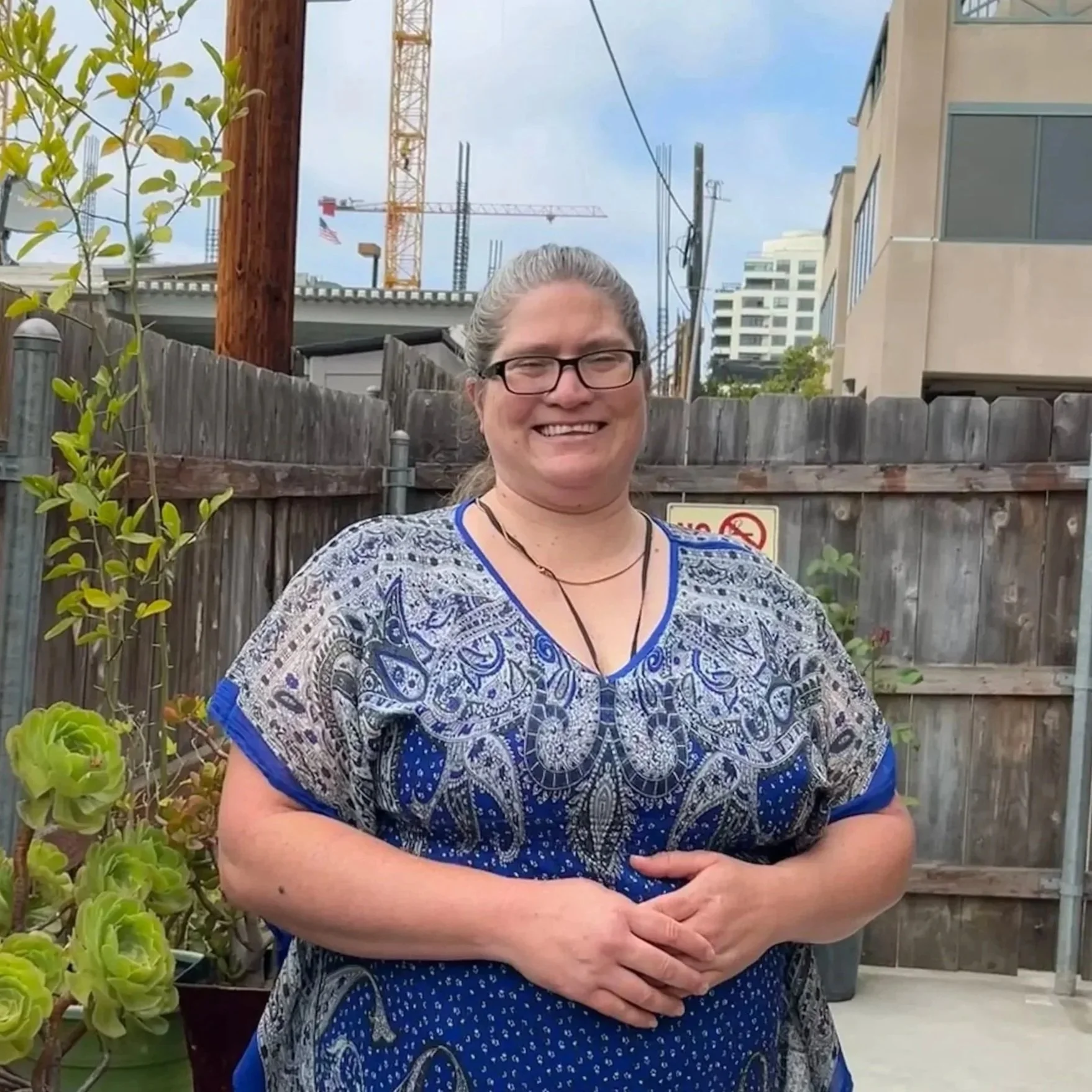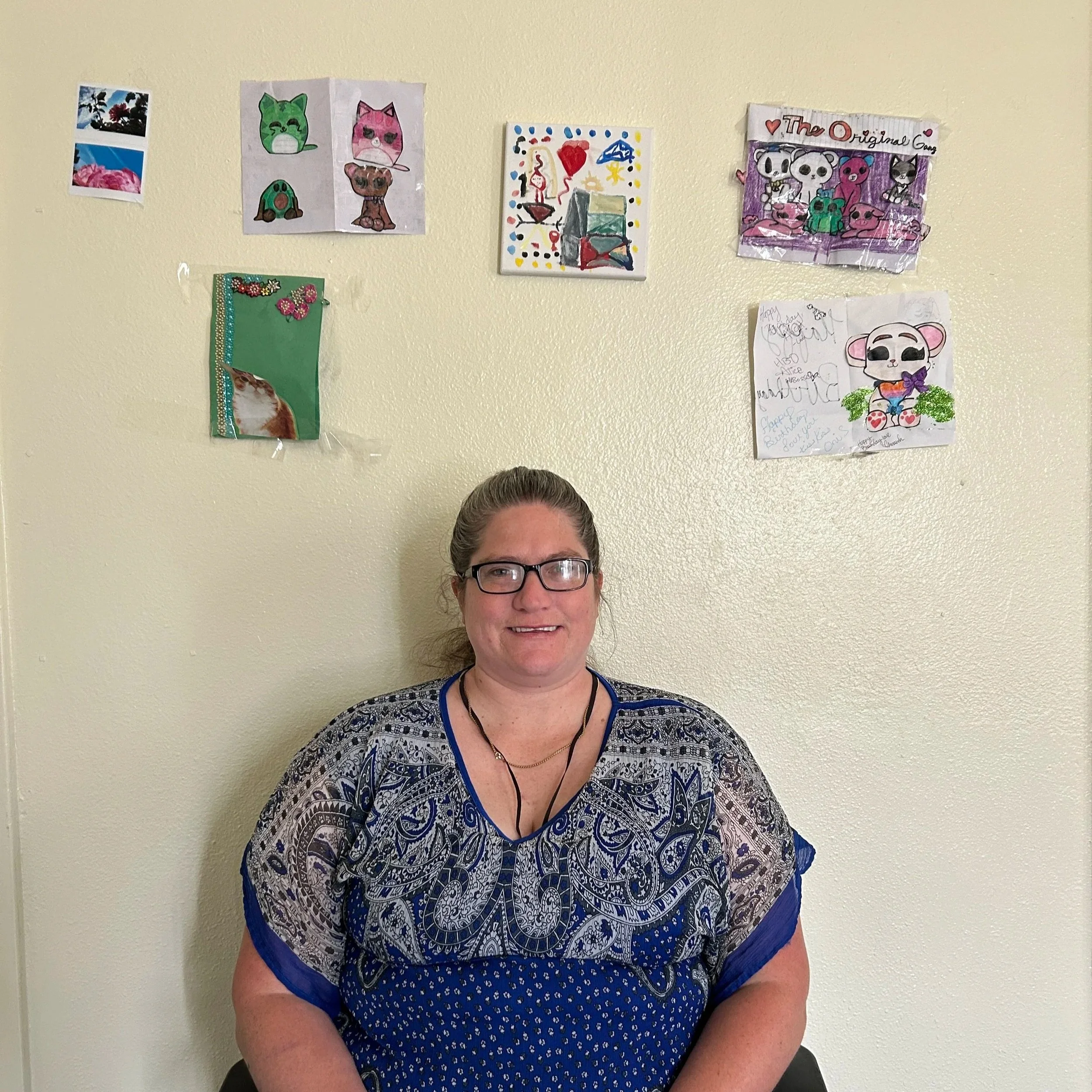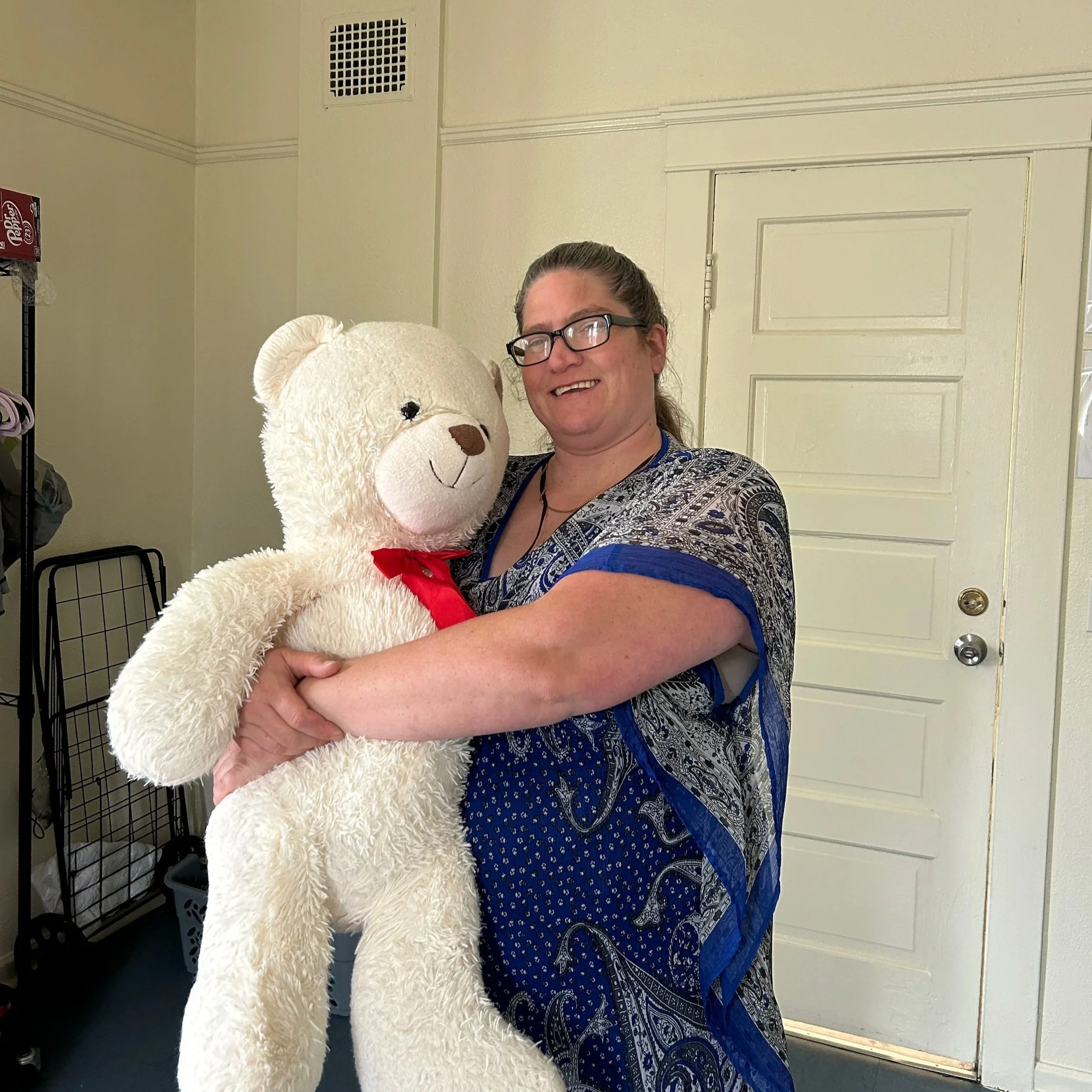SAN DIEGO – ECS' clients are the heart of everything ECS does. Every staff member’s focus, each service offered, and every penny raised goes back to breaking barriers and uplifting neighbors in need. Last Thursday, ECS celebrated its clients with its annual Thanksgiving Recovery Lunch.
Volunteers serve a Thanksgiving meal. November 2025.
The lunch was hosted at St. Mark’s Episcopal Church. Volunteers from St. Mark’s, Enterprise Bank, Navy Federal Credit Union, Ciprus Consulting, Christ Church Day School, and individual sign-ups made the day possible, helping to prepare the church, providing appetizers and desserts, and greeting and serving the guests. The students from Christ Church Day School even created a gratitude art project for guests to participate.
The Recovery Lunch celebrates community. November 2025.
Guests included clients from Central East Regional Recovery Center (CERRC), C-HRT Safe Haven, and Uptown Safe Haven. Some clients also brought family members to join in the celebration.
Renee, a CERRC client, attended the recovery lunch for the first time. “I’m just excited to be here and have new beginnings and second chances to be able to start a new future,” she said. “They [ECS staff] really genuinely care about us and want us to succeed.” Renee is 82 days clean as of the time of the recovery lunch.
Guests add what they are thankful for to the gratitude art project. November 2025.
Everyone in attendance – from the guests and volunteers to ECS staff and leadership – enjoyed a full Thanksgiving meal together and commemorated the recovery journeys of so many in the room with a chip ceremony.
Recovery chips were given anyone in the room who had achieved any amount of recovery. Whether someone was celebrating years of sobriety or weeks, the room cheered on their admirable accomplishment.
Clients, volunteers, staff, and leadership enjoy a Thanksgiving-style feast together. November 2025.
The community aspect of the lunch is what makes the event so special. Sarah, a C-HRT resident shared her view on creating community. “It’s important to show up and contribute and be there to support the community,” she said. Sarah is passionate about helping others and is excited to be an ECS volunteer in the future as a way to give back.
A huge thank you to St. Mark’s and Fr. Richard for hosting the lunch once again. ECS Recovery Lunch is always a day of celebration, community, and gratitude. It serves as a reminder of the impact ECS’ programs make in the lives of so many and the strength of its clients.
ECS cannot make this change without support. To help ECS continue to impact the San Diego region and bring real transformation to thousands of individuals and families visit our donate page here: www.ecscalifornia.org/donate.

